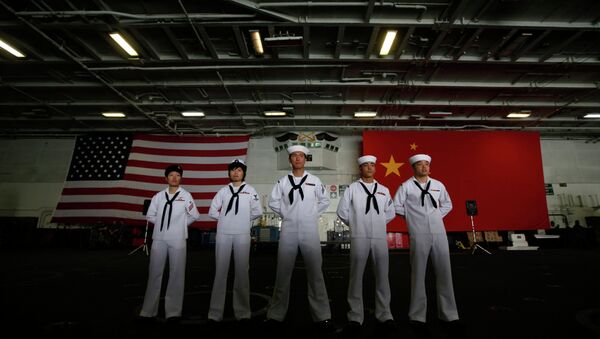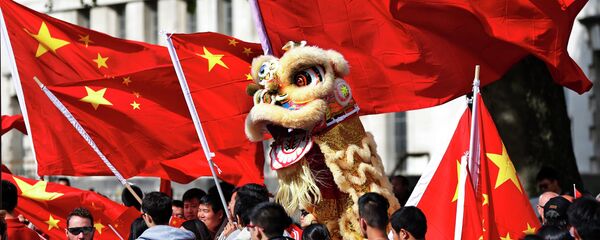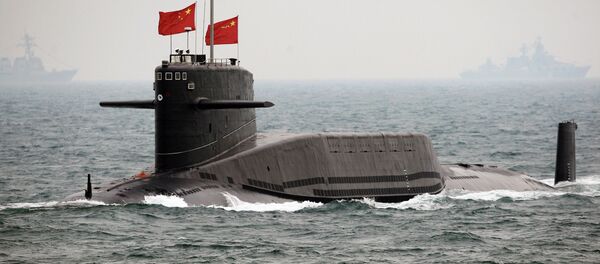According to Andrew S. Erickson, an Associate Professor at the Naval War College and an associate in research at Harvard University's Fairbank Center for Chinese Studies, while solving geopolitical disputes with China the United States should consistently pursue its goals, promoting its own policy formulations.
"To set the right tone and expectations while safeguarding American interests, the Chinese policy bumper sticker that flows from falling for the "Thucydides Trap" must likewise be rejected. As originated and promoted by Beijing, the concept of "New-Type Great Power Relations" (and its variants) is invoked to imply that Washington must respect China's "core interests" (including, apparently, in the South China Sea) while not committing Beijing to corresponding accommodation in return," Andrew S. Erickson emphasized.
The professor referred to Thucydides (c. 460 — c. 400 BC), an Athenian historian, political philosopher and general, who elaborated: "It was the rise of Athens and the fear that this inspired in Sparta that made war inevitable."
"The rapid emergence of any new power disturbs the status quo… Uncomfortable as China's rise is for the US, there is nothing unnatural about an increasingly powerful China demanding more say and greater sway in relations among nations," Professor Allison emphasized.
According to the scholar, both the United States and China must "begin talking to each other more candidly" and be prepared to make serious compromises.
However, in contrast to Professor Allison, Erickson believes that the Thucydides' concept is simply outdated. He insisted that "the evolution of nuclear weapons, international institutions, globalization, financial markets, and transnational production chains," have made the world "a very different place" than it was in the beginning of 20th century, let alone the times of Ancient Greece.
The probability of the direct military conflict between China and the US is small, since both countries have significant shared interests, the expert underscored. Thus far, Washington must consistently pursue its geopolitical goals, using all necessary leverages, including economic, political and military measures.
"US policymakers must thus consistently avoid embracing flawed historical analogies that encourage unrealistic expectations on Beijing's part," Erickson stressed.
While China is on track to have quantitative parity with the US in surface-to-air missiles (SAMs) and anti-ship cruise missiles (ASCMs) by 2020, the US needs a serious military buildup in order to maintain control over the Western Pacific, Erickson insisted.
"Let me reemphasize: the United States and China can avoid war. I'm confident that we will avoid fighting each other. Rather, this is about maintaining robust deterrence in peacetime and in any crises that might erupt. Specifically, we must deter Beijing from attempting to resolve island or maritime claims disputes with the use of force, or even the threat of force," Erickson claimed.
In other words, the expert calls for further militarization of the region. According to Erickson, mutual political compromise between China and the United States is not the way to solve growing tensions, but rather "robust" military deterrence in the South China Sea region and beyond.
It is obvious that the American political establishment is unwilling to consider Beijing an equal partner and a great power. Regardless of the fact that thousands of years have passed since the 30-years Peloponnesian War, it seems the history is repeating itself and Washington risks walking straight into the notorious Thucydides' trap.






